#Wu Shifu
Text
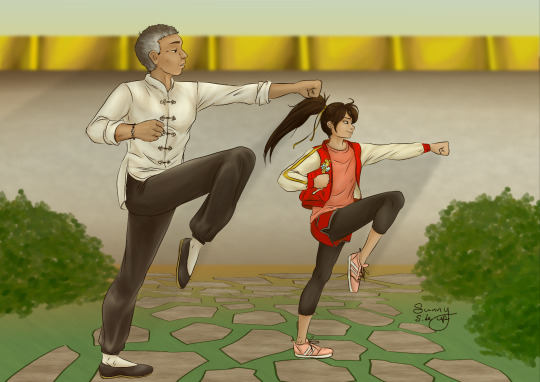
This one's more recent, 2021 I believe? I'm pretty sure it was one of the last Miraculous Ladybug drawings I did, back when I was an artist for the official LadyBlog team on Amino. :)
#i don't remember this girl's name I'm so sorry. it's the characters from the Shanghai special i know that much.#i change my signature so much throughout these you guys. at least the art style was somewhat consistent#repostober#old art october#day 2#my art#miraculous ladybug#Miraculous World: Shanghai special (or whatever it was called.)#Fei Wu#Wu Shifu#i looked it up i really could not remember#your girl still can't draw backgrounds#how did i manage to get cast shadows in the hazy air but not on the ground? (again probably only spent like 2 days on this idk.)
20 notes
·
View notes
Text
Fei’s training arc because I say so
A headcanon of mine (that I have discussed at least once) is that Fei never completed training under her father. Yes, she earned the title of “Guardian”, but it would be a number of years yet before she would be a true master. Their style was specific to the Wu family, and there is nobody left to teach her. That fact leaves her feeling melancholy, and sometimes even a bit depressed.
But Mei Shi tells her not to despair, for there ARE people left who can train her!
...just not someone who is corporeal.
What if every Renren was trained by the Wu family? And what if Fei can actually speak with the every past Renren through the Prodigious? (Yes, this idea is very ATLA)
It would be so dope to see an arc where the previous Renrens pick up her training from where her father left off. They not only teach her how to fight but also more abilities of the Prodigious like partial transformations.
Bonus headcanon: there are only a handful of people throughout history who have wielded the Prodigious, unlike the Miraculous which have had MANY generations of wielders. Because the Guardians “abandoned” the Prodigious, it has only ever been used in times of great crisis.
10 notes
·
View notes
Note
Nathalie’s Secret Family! Nathalie & Tom and Sabine & Marinette, Socqueline, Marx, Fei & Gina Dupain and Rolland Dupain & Wang Shifu & Jagged Stone and Penny Rolling & Clara Nightingale - Am I Awake? Or Am I Dreaming? (Family Trip)
Listen, you really shouldn't sleep through road trips with this family, not just because of the strange people in this family, but also just because Nathalie was fairly certain that the landscape didn't have roaming dragons, dancing griffons, and galloping unicorns.
Nope, not dealing with this, turning over and going back to sleep.
#fanfic summaries#Miraculous Ladybug#Nathalie's Secret Family#Nathalie Sancoeur#Tom Dupain#Sabine Cheng#Marinette Dupain-Cheng#Socqueline Wang#Marc Anciel#Fei Wu#Gina Dupain#Rolland Dupain#Wang Shifu#Jagged Stone#Penny Rolling#Clara Nightingale#wolflover2426
8 notes
·
View notes
Text
The Role of the Sage in Kung Fu Panda
Thinking about the trinity in Kung Fu Panda.
Po, the young hero. His journey is two-fold: to find his own path, and to recognise his own worth.
Shifu, the mentor. His journey is to both love and care for those he trains, and to have enough objectivity to see them for who they are.
Oogway, the sage. His role is to guide the young people who will come after him, and once that job is done, leave the material world.
I think there's a reason why the "sage" role frequently dies in stories. Not just because it is a necessary catalyst for the heroes and the young mentors to rise to the occasion, but perhaps because that is their actual journey in the story.
It's difficult to let go. It's difficult to trust things that you've worked hard for to be carried on in the hands of others. It's difficult to see all that must be done and how to do it, but have the wisdom to leave this to others.
Every step of the way, Master Oogway has allowed Shifu to make his own blunders, and grow as a mentor. He allowed Shifu to send a messenger to Chorh-Gom Prison, knowing pretty well that this act would allow Tai Lung to escape. He allowed Shifu to train Po in his own way, even knowing the mental state Shifu was in and the unique needs of Po.
Although all these things seem pretty natural, for a less experienced sage, I'm sure it would have been difficult to do. I can see another version of Oogway, who perhaps is more anxious and less at peace, struggling with controlling Shifu and his students to make sure they were perfect (in fact, we see plenty of "sage" roles do so in other media, such as Grandma Wu from Turning Red and Abuela from Encanto).
(As an aside, we also see Master Oogway's failures. Although framed more as Shifu's failures, Master Oogway also failed Tai Lung. He should have stepped in to intercept Shifu's toxic way of training his son. He should have also provided more guidance for Tai Lung instead of turning away. Master Oogway has mastered the art of detachment, but he did not master the art of guiding others until the main events of Kung Fu Panda.)
While the growths of Po and Shifu were plain to see in Kung Fu Panda, it's also a treat to see Master Oogway complete the cycle of life completely in mastery of his role in life.
#kung fu panda#po ping#master oogway#master shifu#tai lung#archetypes#my thoughts#story theory#analysis#turning red#grandma wu#encanto#encanto abuela
57 notes
·
View notes
Text

What refusing to take the L does to a Marinette or Ladybug.
Proceeding evolving into betraying:
Everyone who stood by her
Who's been loyal to her and put their trust in her
The many inspired or encouraged by her
What she represents
And especially Adrien/Cat Noir
#No wonder the princess justice akumatization failed. jk but also...#congrats on failing Shifu Wu and Fei Wu too#BRUH#Marinette Dupain Cheng#Miraculous Ladybug#Representation#and promises are no more#LOL#Lila#Lila Rossi#Rest In Vain Sadly#Adrien Agreste#Cat Noir#ml re creation#REVELATION#PlumSaffron
7 notes
·
View notes
Text
A messy list of Oogway's past headcannons: Part 3
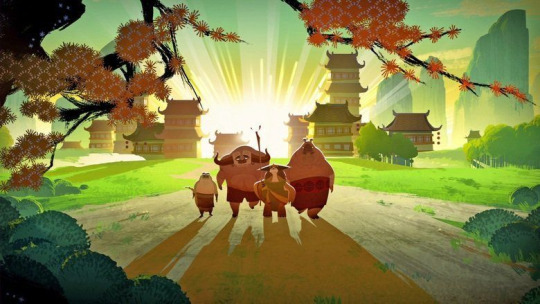
Part 1, Part 2
Secret of the Masters to present:
Kung fu has been taught for a good while, to a point where almost everyone practice kung fu. Some people started to used kung fu for their own personal gain. Oogway at this time and age start to travel across China letting the universe guide to where ever he needs to go.
Villains like the Wu Sisters start to create a name for themselves and causing trouble in China. Oogway got involve with taking the sisters down. The sisters were then separated into three prisons.
A few years later he met young Master Rhino, Ox, and Croc in Secret of the Masters.
Oogway met a young red panda named Shifu as a student from a kung fu training academy. Took Shifu in as his student in the Jade Palace. Due to a vision of seeing Shifu training the Dragon Warrior.
When Master Shifu was ready to take care of the palace by himself, Oogway went back to traveling across China.
I don't think Tai Lung ever had that much interaction with Oogway. Since his only issues with Oogway was that he didn't choose Tai Lung to be the Dragon Scroll. So I'm going to assume that their relationship is very distant. Like you see a family member once a year distant.
While Oogway was traveling, Shifu adopted a snow leopard cub. Oogway would see this only when he returns to the Jade Palace, and was told that Shifu was training him to be the Dragon Warrior.
At first glance Oogway didn't see the Chi of the Dragon Warrior, but Shifu suggested that it might be because the boy just wasn't ready yet. Oogway was convince that this might be the case and went back to his travels.
When Oogway returned while Tai Lung was at his prime, he sees that the boy grown up very different than when he was a cub, but there was no Dragon Warrior Chi there. Instead he saw that a darkness had grown inside of him.
Oogway must tell Shifu that Tai Lung wasn't the Dragon Warrior, even though the aftermath might be unpleasant. Believing it was better to tell them soon than let the darkness grow further in Tai Lung.
Oogway was telling Shifu why Tai Lung wasn't the Dragon Warrior when a messenger told the masters that Tai Lung was rampaging in the valley and was heading for the Jade Palace moments before Tai Lung came in to take the Dragon Scroll by force.
Oogway used a move that would help immobilize Tai Lung for a good while. He took Tai Lung to Chorh-Gom Prison while Shifu handle the mess in the Valley of Peace.
Oogway tried to talking to Tai Lung into sense in order to give the man one last chance of redemption before being locked up in prison. Tai Lung refuse to see what he had done was wrong and claim that it was his destiny to be the Dragon Warrior and have the Dragon Scroll.
After with what happen to Tai Lung, Oogway started to travel less and be more involve in the Jade Palace both out of guilt and age.
He tried to help guide both Shifu and Tigress while being there in the Jade Palace. Though he'll pull some mean tricks on Shifu whenever he is too harsh on Tigress.
In one of his travels, he heard stories about a monkey pulling pranks on a village. Oogway decide to get involve and help the village out with this prankster. This will be last trip away from the Jade Palace.
When Oogway stopped traveling and rested in the Jade Palace for good, he notice how Tigress became more reserved. He thought to give her advice and advise Shifu to not be so strict with training.
After the Furious Five defeated Boar, Oogway let Shifu to train the Five on his own. Trusting that his friend can handle thing on his own from now on.
Years later Oogway had a vision that Tai Lung will return. Even though it may pain Shifu, Oogway needed to tell him very soon because he knows that he would not be there to stop Tai Lung. They needed the Dragon Warrior to stop him.
While the Five was showing their skills in the tournament, Oogway was actively trying to sense the Dragon Warrior's Chi. So when Po was almost to gate's, Oogway sensed his Chi but didn't really see him.
Oogway had his eyes closed the entire time when choosing the Dragon Warrior, letting Po's Chi guide Oogway to where he will be.
Oogway was just as surprise as everyone that it was a panda who was the Dragon Warrior, but soon found it fitting since it was the pandas who healed him.
I do believe at this point, Oogway's age had finally got to him. We constantly see Oogway shaking and licking his lips, it comes off as him barely holding onto life. Especially when you compare his animation in the third film (yet again he was also dead so...).
Despite having a vision of Tai Lung's return, he was still surprise to hear of his escape.
Oogway had no control over when he will die. The petals were already moving on their own before Oogway had said "my time has come."
Oogway sensed that he will die soon, but was content with his fate and gives Shifu his last advice before passing.
Well that's all I have for now. Granted though the only thing I'm stuck on is wether Oogway had the visions of Tai Lung's return as well as Kai, or just saw the vision of Kai's defeat once he met Po.
#kfp#kung fu panda#master oogway#wu sisters#master rhino#master ox#master croc#master shifu#tai lung#tigress#po ping
23 notes
·
View notes
Photo


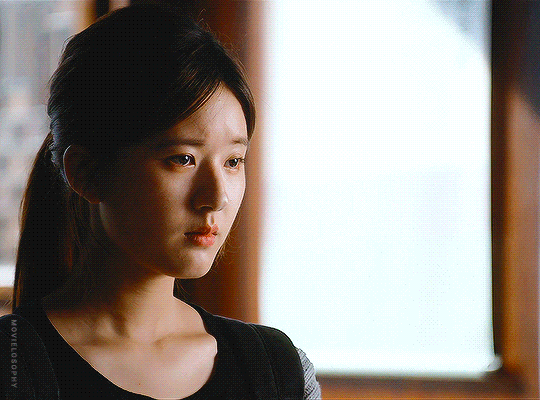
后浪 | forgiven
#the relationship between tou tou and her shifu#后浪#aesthetics#hou lang#gen z#cdrama#zhao lu si#character: sun tou tou#wu gang#character: Ren Xin Zheng
17 notes
·
View notes
Text
i just rewatched kung fu panda after a couple years and the parallels between master shifu and tai lung and master wu and morro are making me crazy and emotional
#i don’t have the braincells to put it to words rn but the emotions are happening#ninjago#master wu#morro#kung fu panda#master shifu#tai lung
18 notes
·
View notes
Text
Fanfic Cover for my story: Darkness In His Heart
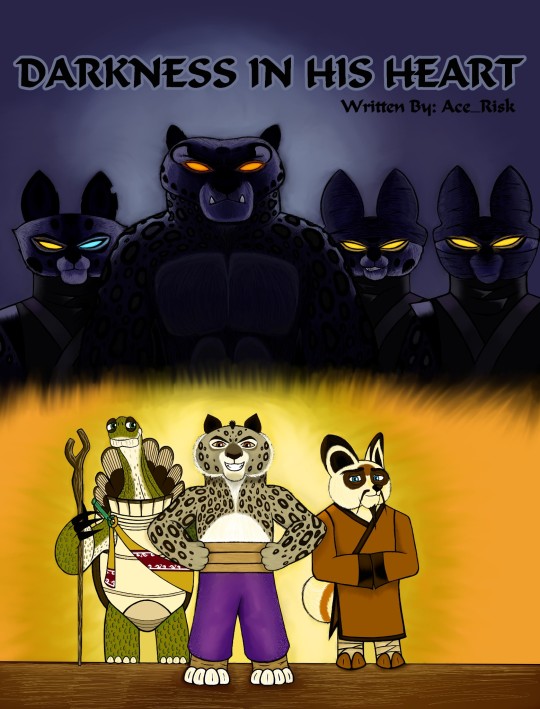
Link to Fanfic:
18 notes
·
View notes
Text
Journey to the West but Tang Sanzang has a gun
#yes I’m still thinking about that ‘shifu’s gonna send you to the western heavens’ picture#but like truly I think it would have solved a lot of short term problems if Sanzang had a gun and was willing to use it#might create more long term problems tho#and technically yes handguns existed when Wu Cheng’en’s Journey to the West was written but I think it’s set a few centuries earlier so
5 notes
·
View notes
Text
My Favorite Kung Fu Masters:
1. Master Shifu

2. Master Oogway

3. Master Splinter
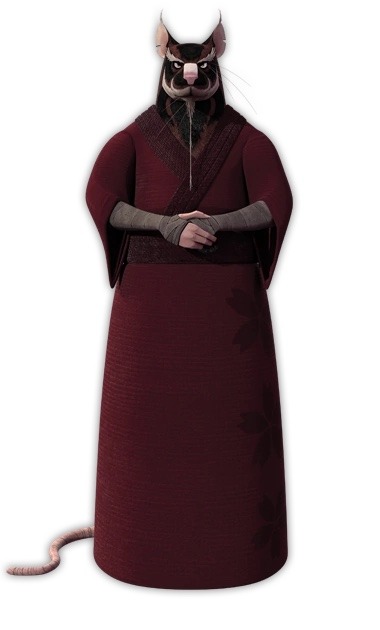
4. Sensei Wu
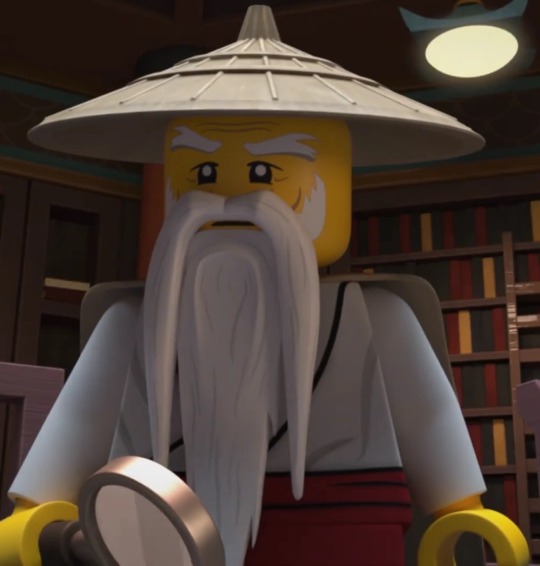
5. Master Chow

6. Morpheus
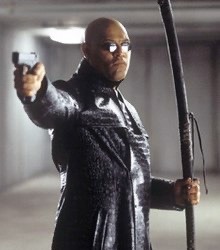
7. Master Roshi

#Kung Fu panda#dreamworks movies#dreamworks#master shifu#master oogway#master splinter#sensei wu#master chow#morpheus#master roshi#Kung fu master#martial arts#the matrix#ninjago#tmnt#teenage mutant ninja turtles#minions rise of gru#minions#despicable me#illumination entertainment#illumination#kung fu#screencap
11 notes
·
View notes
Text
Kung Fu Panda Legends of Awesomeness - "Monkey in the Middle"
Episode 25 Season 1

Synopsis:
There's a crime wave sweeping the Valley of Peace, but Po's enthusiasm for busting crime takes a hit when he discovers that the culprit might be Monkey.
Characters:
Monkey-centric episode! We learn his backstory and relationship with his brother. Po and Monkey are more than friends in this episode. They're brothers. What seals it is the animation and body language. The looks and the moment Po and Monkey grabbed hands. Best friendship and relationship in the show hands down.
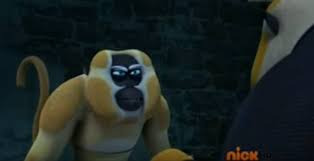
I usually don't focus on fight scenes because they're consistently good in this series. But everything that happened in the mill was incredible.
Everything it could've done it did. The drama, when Po and Monkey fight, Monkey saving Po, Wu Kong saving Monkey, and Po saving them both. We rarely get to see two monkeys fight. We also don't often get to see Po fighting members of the Furious Five.
You know how in superhero media you just can't help but wonder what it would be like if those two fought? But they're both good guys, why would they fight? This episode provides a believable explanation as to why Monkey would fight someone who is like a brother to him. To protect Wu Kong, a brother. It looks like we might see more of him.
Great episode, a must watch.
Villain: Wu Kong is really interesting. It’s rare to see the specious of the Furious Five as an antagonist. Let alone with such personal connection. I wonder what will happen to him next.

#Kung Fu Panda Legends of Awesomeness#Kung Fu Panda#Shifu#kfp#Po#Master Shifu#Master Viper#Master Crane#Master Monkey#Master Mantis#Master Tigress#Wu Kong#Monkey in the Middle#Kung Fu Panda Legends of Awesomeness - Monkey in the Middle
7 notes
·
View notes
Text

Feels like I should make a list of what nicknames I have for each character with explanations or else people aren't gonna know who am I writing for when I say "Mister Dispel" or "Fushou"
#i won't actually make that list but i will apologise for any confusion#the only thing i will never apologise for is calling meng po soup heartless#devs better not translate it as wu qing or i will RIOT#also mister dispel = yusheng = shunde raw fish and fushou = buddha's temptation#mister dispel comes from the joke that devs accidentally wrote down his skill as his mortal name#so now he is ☆mister dispel☆#yusheng who never heard of him#fushou is short for fushou quan which is buddha temptation's mortal name#upset that fugong cannot be carried over and buddha's temptation is way too long of a name to say so fushou it is#what else what else#milky = milk fish soup#crabbie = crab in orange#shifu = toso wine#senior = eight immortals#boss = drunken chicken#too many to list but that's the ones i can remember off the top of my head#the tale of food#tale of food#▪︎ thoughts
1 note
·
View note
Note
Nathalie’s Secret Family! Nathalie & Fei & Cheng Shifu - Matching Red Streaks
After a minor explosion while making tomato sauce, Fei Wu makes a comment that has Nathalie laughing, and even Cheng Shifu cracking a smile.
#fanfic summaries#Miraculous Ladybug#Nathalie's Secret Family#Nathalie Sancoeur#Fei Wu#Cheng Shifu#supportwomenrights-wrongs
4 notes
·
View notes
Text
Wei Wuxian as Shen Jiu's demonic cultivator teacher
Shen Jiu trained under the biggest and baddest demonic cultivator Wu Yanzi, right?
Well, who did Wu Yanzi learn everything from? What if... Wei Wuxian, upon his death in the Burial Mounds, woke up in a new world (ahem PIDW) and continued his demonic cultivation again?
---
Wei Wuxian, alias Wu Yanzi: How did I ever raise a kid to become a mini-Lan if Lan's worse green instead of blue! Ahahaha Lan Zhan, are you haunting me in my second life?! Is this the kid we would have raised together if those events didn't happen?
Shen Jiu: ...fuck Shifu found the alcohol stash again
---
Once he becomes Qing Jing peak lord, Shen Jiu regularly hauls his demonic cultivator teacher back to the peak because no one can trust Wei Wuxian to practice proper self-care. Wei Wuxian goes by his name instead of alias when on the peak of course.
And how does Wei Wuxian pay his cute little student back? By releasing a bunch of rabbits into the bamboo forest! Shen Jiu is ready to whack his teacher into oblivion for the stunt.
Wei Wuxian: QAQ how did my student become such a Lan! Next thing you know, he's going to write up a wall of rules!
[#if wei wuxian was shen jiu's demonic cultivator teacher au]
#wei wuxian#shen jiu#shen qingqiu#svsss#scum villian self saving system#scum villain#scumbag villain#mdzs#mao dao zu shi#mxtx#webnovel#fanfiction idea#the untamed#if wei wuxian was shen jiu's demonic cultivator teacher au
352 notes
·
View notes
Text
🪷 The Lotus Flower in Mysterious Lotus Casebook 🪷
i. Growing Deep Roots
As noted by difeisheng, Li Xiangyi is an image more than he is a person. He’s the “symbol” and “beating heart” of the Sigu sect; “he embodies everything [the sect] stands for” and “has become one with every person he represents” in his role as a leader. As such, one might say he doesn’t exist as an individual who’s allowed the luxury of flawed, fluid humanity. Rather, he’s fixed into an object: a shield protecting those under his care, a mirror reflecting those he’s taken upon himself to be the champion for.
While a heavy burden to carry, this identity as image is also shown to be brittle, hollow, like a hazy mirage which is more dazzling appearance than substance. Even Fang Duobing introduces Li Xiangyi to Li Lianhua by showing him a painting of his shifu — ink on a page, a person turned into a hero to be worshipped and idolated.
Li Lianhua, over the ten years that pass after the Great Battle of the East Sea, works to plant and cultivate a new identity in the same way one might grow flowers. Li Lianhua forms deep roots and grows out of the mythical hero’s shell he’d been carrying as Li Xiangyi, thus developing an identity which is solid and grounding in contrast — an identity which involves “walk[ing] within a crowd instead of [soaring] above it.”
This shift from image to person is itself rooted in the lotus mantra (written by Buddhist Layman Pang during the Tang Dynasty) which Li Xiangyi first encounters after monk Wu Liao rescues him:
一念心清净
莲花处处开
The heart attains peace with a single thought;
Lotus flowers bloom all around.
Although the exact timeline is left to interpretation, it’s implied that the lotus mantra operates as a catalyst of change for Li Xiangyi and that he changes his name to Li Lianhua after reading it. Now what is it about it that speaks to Li Xiangyi so deeply in that moment? As noted in 《 人間福報 》, the lotus mantra teaches us that a pure heart will result in an open and enlightened mind. One subtle, profound thought rife with compassion is enough for a person to glimpse Buddha in a flower, a leaf, a grain of sand or a speck of dust. In short, “if you can find peace within yourself, then you will find peace everywhere.” Perhaps Li Xiangyi, at his lowest point, finds solace in the prospect of stripping his life down to its very core and searching for purity, wisdom and peace within his troubled heart.
By renaming himself 莲花/liánhuā lotus flower, Li Lianhua takes his destiny into his own hands; he empowers himself into reshaping his identity and laying down the foundations for the person he wants to become. Similarly to The Yin-Yang Master: Dream of Eternity which tells us that “names are the shortest spells in the world,” Li Lianhua’s new name functions as a spell which speaks a new him into existence. It’s a deliberate choice, a conscious attempt at breaking free from the suffocating shell Li Xiangyi was trapped in and become a person of his own choosing.
The act of (re)naming notably also extends to Li Lianhua’s abode which he dubs 莲花楼 “Lotus Tower.” In addition to this significant choice of name, it’s interesting to note that Li Lianhua starts growing vegetables inside Lotus Tower when he’s left with nothing after his demise at the East Sea and is facing starvation. As such, his home is quite literally a site not only of self-sustenance and survival, but also of growth — a growth which requires hard work, patience and faith and nearly brings Li Lianhua to tears when his hopes are finally rewarded and the seeds he planted begin sprouting. The act of physically planting vegetables and learning to cook those vegetables speaks of a refreshing and grounding simplicity — of something disarmingly vulnerable and human after playing the role of a god-like figure. Li Lianhua has sweat on his brow and hope in his heart; he plants seeds, watches them grow and keeps himself alive by his own hands.
It seems it’s not only Li Lianhus’a home, but also his very person, which steadily grow into a lotus flower. Li Lianhua wears a variety of hairpins directly linked to the lotus, and the colour coding of his garments moves from the red he used to wear as Li Xiangyi to a lighter palette filled with greens and blues — colours which are more obviously linked to nature.
ii. Life Borrowed and Given Away
The lotus, both traditionally and within the drama itself, is closely connected to the theme of rebirth. On a literal level, the exotic lotus flowers of Cai Lian Manor grow directly from the corpses of the victims drowned in the pond, thus embodying life born from death. thawrecka writes in their story that Li Lianhua is “nothing but a lotus nurtured by a walking corpse, a body that doesn’t realise it should already be dead.” On a figurative level, the lotus grows in muddy water but blooms unsullied every morning, thus symbolising rising from a dark place and growing into something beautiful and colourful despite all the odds. The different stages of the lotus’ blooming can be taken to represent the beginning, middle and end of a spiritual path in Buddhism — a parallel to the theme of 趟/tāng taking a journey which underscores the drama in various ways.
Li Lianhua’s journey, more specifically, is that of a lotus being reborn. The soundtrack piece 《 一壶莲花醉 》 “A Pot of Lotus Wine” emphasises this connection in the following lines:
问一句莲花的悲喜
断一柄弃剑入青泥
I ask about the joys and sorrows of the lotus;
A broken, abandoned sword is thrown into the mud.
Not only does Li Lianhua keep stressing at different points of the drama that Li Xiangyi is dead and all that is left behind is Li Lianhua; he even breaks his own sword Shaoshi at the end of the story, thereby physically reenacting a process of destruction—death—and rebirth. As Li Lianhua writes in his farewell letter:
剑断人亡
My sword is broken, and I will be gone.
The significance of Li Lianhua’s action is further intensified here by the fact that the sword in the song is said to be thrown into 泥/ní mud, the site from which a lotus flower grows.
Considering that Shaoshi operates as a device embodying Li Lianhua’s character development throughout the drama, the fact that Li Lianhua decides to break it in the last episode should be taken as a key moment in which he chooses how his own narrative is going to end. Li Lianhua decides to kill for good the glorious image of Li Xiangyi which has become sullied with pain and regret in his heart, so that a simple, fragile peace can begin growing in its place like a lotus flower amidst the mud.
However, the tragedy of Li Lianhua’s narrative is that the rebirth he works to achieve for all these years is not his own to enjoy and never was intended to be. After the Great Battle of the East Sea, as Li Lianhua is reborn from Li Xiangyi and starts planting seeds all around him, he has already accepted that he’s nothing but a ghost, “wandering in the jianghu to close his loose ends and finally [...] vanish without a trace, not even a body left behind.” As mx-myth remarks, even the shift in his garment colours to an overwhelming amount of white as the story progresses makes it clear that he’s resigned to go and has “already started dressing for his own funeral.”
The lotus flower symbolism permeating the narrative accentuates this bone-deep, unshakable resignation. While imprisoned by Jiao Liqiao, Li Lianhua is full of an aching, bittersweet fatalism when he recites a section of Guan Hanqing’s《 窦娥冤 》“The Injustice to Dou E”:
花有重开日
人无再少年
不须长富贵
安乐是神仙
Flowers will blossom again,
But a man can never be young again.
Seek not eternal wealth;
You only need to be content.
Independently from the original meaning of the lines written by Guan Hanqing, the words seem to take on a sad, wistful quality when spoken with a bitter smile by Li Lianhua. In this scene, while the speaker reflects that rebirth occurs outside of themselves in flowers, they acknowledge that their own reality is one inevitably bound to end in old age and decay. Instead of looking forward to a bright future, the speaker doesn’t express any dreams nor ambitions and is only grateful that they’re alive this minute, this second, without any future prospects awaiting them. Perhaps a similar sentiment is reflected in the following lines from 《 一壶莲花醉 》 “A Pot of Lotus Wine”:
了了心事只
不负众生 而已
After settling my worries,
I just want to live up to all sentient beings.
Li Lianhua’s connection to the lotus flower, in fact, was always meant to be one of non-attachment. While Buddhism believes desire to be the root of all suffering, the lotus symbolises non-attachment due to being “rooted in mud (attachment and desire)” while “its flowers blossom on long stalks unsullied by the mud below.” This explains in part why the lotus is considered pure and noble. For Li Lianhua, this non-attachment takes on sorrowful connotations: it means that he stubbornly refuses to reap the seeds he sows and focuses his purest heart and will into ensuring those around him get to reap them instead. Non-attachment means allowing himself enough (a roof over his head, food on his plate) to survive, but rarely letting himself indulge in the precious luxuries of reciprocated love and care — of carefree joy and thirst for adventure.
The ten years he lives after his first death at the East Sea are, for him, only borrowed time he didn’t deserve — borrowed time not dedicated to himself, but rather dedicated to others.
In many ways, Li Lianhua’s path effectively goes full-circle by the end of the narrative. When he and Di Feisheng reminisce about the moon they remember from ten years ago, they conclude that today’s moon isn’t any brighter than the one alive in their memory: rather, it remains constant, unchanged, as though the past ten years never existed as anything other than a short pause in the story, a coma, long enough for wrongs to be righted but not for an already-dead person’s fate to be changed.
It’s interesting and particularly significant that the Styx flower (忘川花, from 忘川 “River of Forgetting” in the original Mandarin) is said throughout the drama to be the only thing capable of saving Li Lianhua’s life. In traditional Chinese culture, the Styx or River of Forgetting is part of the process of reincarnation; only by crossing it (and forgetting everything they’ve ever experienced and everyone they’ve ever loved) can a person finally reincarnate. For Li Lianhua, salvation through rebirth comes at a high cost — a price he’s evidently been ready to pay since the beginning, even if it means turning him into a ghost who must vanish from the story in order for those around him to grow and thrive further.
When Li Lianhua breaks his own sword to allow for rebirth, it’s not himself he’s saving. His sole purpose throughout his journey as Li Lianhua is to use whatever meagre strength he has left, whatever passion and drive are still alive in him, to save the world in any small ways that he can. He becomes a doctor who heals people; he looks for answers and solves mysteries to atone for the sins he thinks he has committed and rectify the mistakes he thinks he has made, so that those he has hurt can finally find peace and comfort.
The most powerful legacy Li Lianhua intends to leave behind by the end of the story has nothing to do with himself and everything to do with the people around him who he never truly admits he loves — the messy, imperfect world that’s caused him so much pain but that he nevertheless insists on saving with everything he has.
Most strikingly, Li Lianhua chooses—whether consciously or not—to leave the life and future he’s renounced for himself to his companions Fang Duobing and Di Feisheng. The only traces he purposefully leaves behind live in them: in the Yangzhouman coursing through Fang Duobing’s body; the home, dog and recipe book he passes onto him; the worthy opponent he leaves for Di Feisheng to fight in his stead after he’s gone…
Fang Duobing, by the end of the story, has grown into more than a disciple and a friend to Li Xiangyi/Li Lianhua: he himself has become the lotus flower bringing renewed life after Li Lianhua has left the narrative, thereby taking Li Lianhua’s legacy into a hopeful, vibrant future. As mx-myth mentions in their colour analysis, Fang Duobing notably wears bright pastel tones including a large amount of green/blue — a colour coding which emphasises Fang Duobing’s connection to spring and, by extension, new life and beginnings. “Life will always go on if there’s spring”; and so Fang Duobing’s youth, vitality and optimism can grow in the empty space left behind by Li Lianhua after he fades into the autumn of his life.
While Li Lianhua’s predominantly light colour palette might appear to align him with other characters in the drama who have left the past behind and are looking towards the future, Li Lianhua made peace long ago with the knowledge that he’s destined not to belong in that future. Just as the Lotus Sutra teaches us that “the inner determination of an individual has great transformative power” and “gives ultimate expression to the infinite potential and dignity inherent in each human life,” Li Lianhua focuses all his transformative efforts on creating a future which, despite having no place for him, will be fertile ground for the entire martial arts world to grow deep, healthy roots. In Li Lianhua’s own words:
幼芽生枝 新木长成
武林也一样
这未来如何
谁又能说得清楚呢
The young sprouts and the new trees grow.
The martial arts world is the same.
What does the future hold?
Who can say clearly?
Should we say, then, that Li Lianhua’s story is one of sacrifice, self-renunciation and resignation — of drifting inevitably towards death as a flower carried by a stream? As he disappears on a boat and is asked where he’s going, Li Lianhua gives a response which echoes his first death at the East Sea in a way that feels entirely deliberate:
小舟从此逝,
江海寄余生
From now on I would vanish with my little boat;
For the rest of my life on the sea I would float.
How are we to understand a person being reborn simply so they can pass on that new life to others, and being convinced that their only true value lies in their death?
Perhaps, in spite of it all, we can find some small comfort in the knowledge that, no matter how sorrowful Li Lianhua’s fate, it’s at least one that he chooses — one that he has full control over, even poisoned and robbed of his life force as he is. As the lyrics of 《 一壶莲花醉 》 “A Pot of Lotus Wine” underline, “it’s just a matter of picking an ending that you like.” Perhaps that’s all that truly matters.
wuxia-vanlifer makes an excellent point when asking: “What would be more tragic? That he never believed he was loved? Or that he did, but vanished anyway?” While I don’t have an answer to offer, there’s one thing I can say. Li Xiangyi, Li Lianhua — they live and die by love. They can’t conceive of themselves as anything other than a sacrificial tool because, for all that they pretend to be aloof and untethered, they actually love others—and the world—in a bone-deep, profound way they’ve never loved themselves. That love is not only the true driving force behind Li Lianhua’s character and the fate he chooses: it’s the beating heart of the entire drama.
“In this life, I have loved and I have been loved. That is enough.”
Shoutout to the following authors and bloggers whose brilliant words and ideas inspire me, as well as this gorgeous video 💖
ao3: @extraordinarilyextreme @thawrecka
tumblr: @difeisheng @extraordinarilyextreme @mx-myth @wuxia-vanlifer @xinyuehui
#mysterious lotus casebook#莲花楼#li lianhua#li xiangyi#cheng yi#fang duobing#di feisheng#it's sad nerd hours lmao 💕 now we can all suffer together 😘#i'd apologise for shamelessly referencing yym every chance i get even when it's barely relevant but.... well i won't 😌💅#also - please tell me if you notice errors or inconsistencies in any of my points ✨#although i'm always very thorough with my research i don't have a native person's knowledge of chinese language and culture#no doubt i'll think of lots of changes and additions i want to make once this is out there ssdhds 🥴 why is publishing anything so hard??#text: mysterious lotus casebook
80 notes
·
View notes